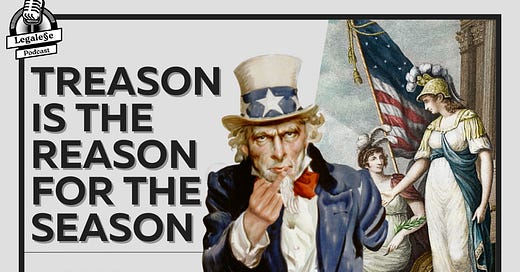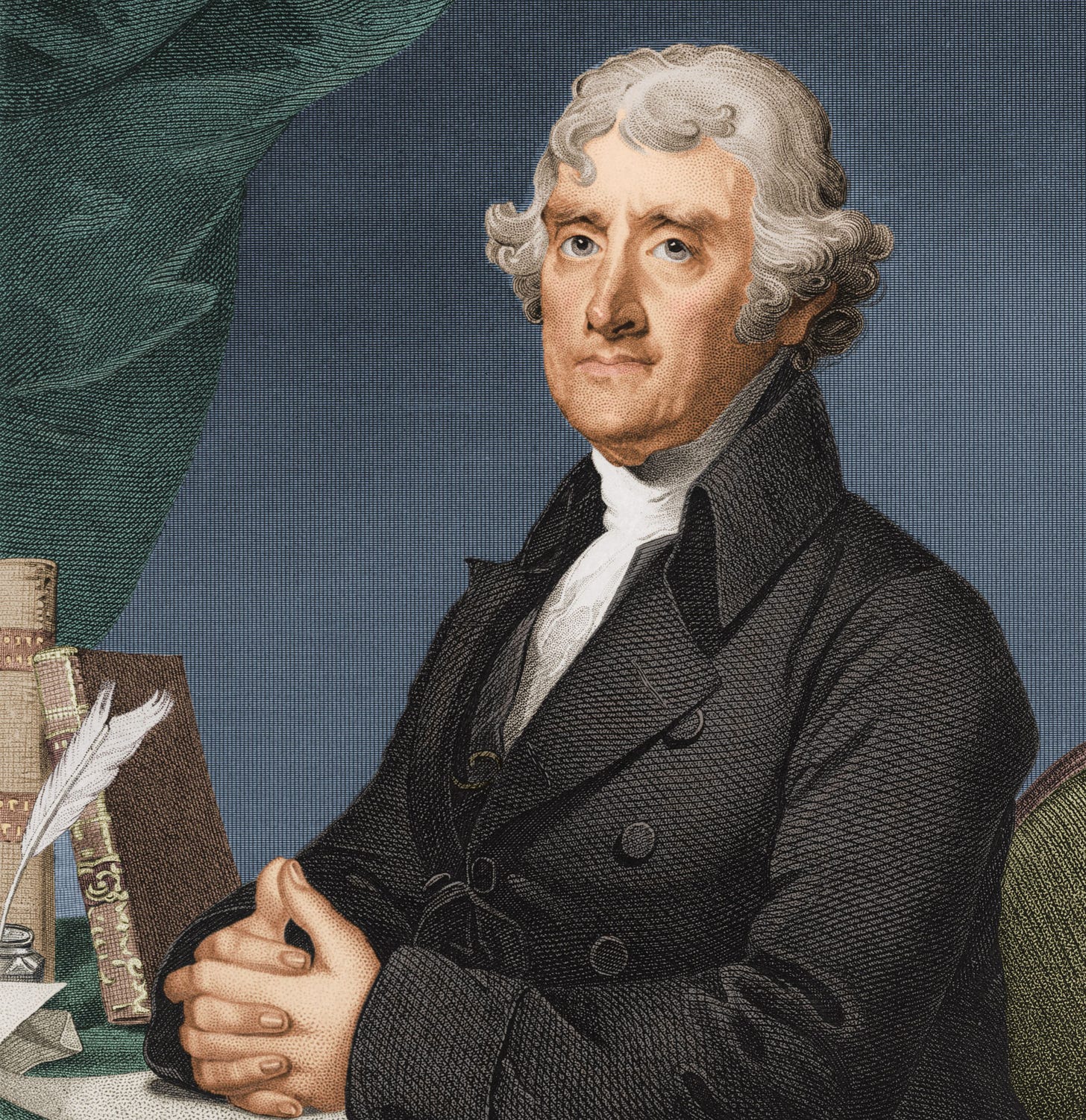Greetings Everybody! And A most happy independence day to you all!
It’s time once again for my annual Independence Day celebration post.
Every Fourth of July we always interface with the same old tired and increasingly meaningless traditions that occur across the country. Today countless people will mindlessly copy/paste the second sentence of the declaration of independence on their social media profile—and at gatherings around the country—the preamble to the declaration of independence will be read aloud to crowds of people who aren’t listening and don’t care— they are just gearing up to watch the fireworks... Which is entirely understandable. We all love fireworks.
After all, they’re real loud and they make things far away blow up real good. What’s not to love?
My point is that all across the country, all those public readings of this truly amazing document are merely sound and fury sanctifying nothing. And on those rare instances where we see anyone go beyond simple recitation, what is offered up is just a superficial look at the general philosophical principles like “life, liberty and the pursuit of happiness…”
To be sure, each of those are indispensable values worth honoring— But, as so often happens, the more we thoughtlessly hear and mindlessly repeat familiar concepts like those, the more their meaning degrades into a shallow and pedantic approximation of itself.
They don’t gain importance— In fact, they do quite the opposite.
So this year I want to shake things up a little bit and give you a very different examination of the meaning, purpose and importance of the Declaration of Independence. Rather than giving you yet another mere recitation and shallow look at the philosophical framework contained therein-- what I want to do is discuss one particular concept that can be found right in this document, next to the all-too-familiar concepts we all recognize. There is an important message here, hiding in plain sight that history overlooks, that scholars refuse to acknowledge and that our government actively suppresses.
Because its mere recognition is an existential threat to any member of the government who seeks to gain or hold an excess of power—Because its recognition alone leads to the undeniable conclusion that powers of governors are fiduciary in character; mere trustees, necessarily and properly accountable to those who have vested their trust in them.
The Declaration’s Overlooked Philosophical Framework
Let us always remember that treason is the reason for the season.
What is this hidden concept in the declaration… It’s right in front of you, if you have eyes to see and ears to hear…
We hold these truths to be self-evident, that all men are created equal, that they are endowed by their Creator with certain unalienable Rights, that among these are Life, Liberty and the pursuit of Happiness.—That to secure these rights, Governments are instituted among Men, deriving their just powers from the consent of the governed,—That whenever any Form of Government becomes destructive of these ends, it is the Right of the People to alter or to abolish it, and to institute new Government, laying its foundation on such principles and organizing its powers in such form, as to them shall seem most likely to affect their Safety and Happiness.
…But when a long train of abuses and usurpations, pursuing invariably the same Object evinces a design to reduce them under absolute Despotism, it is their right, it is their duty, to throw off such Government, and to provide new Guards for their future security.--
It is simply this. The right of revolution.
When reading the Declaration, it is worth keeping in mind two very important facts—
That document constituted high treason against the Crown. Every person who signed it knew they would be executed as traitors should they be caught by the British.
The Declaration was considered to be a legal document by which the revolutionaries justified their actions and explained why they were not truly traitors.
It represented, as it were, a literal indictment of the Crown and Parliament, in the very same way that criminals are now publicly indicted for their alleged crimes by grand juries representing "the People."
Let us always remember that treason is the reason for the season.
This is a document that not only condones but passionately advocates rebellion, sedition and treason. This is not to say that armed rebellions or treasonous acts are always justified. Usually they are not. As the Declaration of Independence counsels:
Prudence, indeed, will dictate that governments long established should not be changed for light and transient causes; and accordingly all experience hath shewn, that mankind are more disposed to suffer, while evils are sufferable, than to right themselves by abolishing the forms to which they are accustomed.
So, while the right to act in a rebellious and treasonous manner cannot be assumed, what can be assumed is the right to personally contemplate and publicly discuss when and if the time has or will come to take up arms— And in the words of Thomas Paine “Begin the world anew.”
Each and every one of us should reserve for ourselves the perennial right to contemplate—and openly debate—whether it is time to alter, or abolish our system of government, with whatever level of force is required to bring about that change— Circumscribed by the principle that no more force should be used beyond that which is absolutely necessary to bring about such revolutionary change.
Today I declare my independence by claiming the right to fight for my independence should that day ever come.
Despite Joe Biden’s repeated claims over the last four years that “You can’t be pro insurrection and pro America” the fact is you can. Indeed there may be times where you can’t not be pro insurrection and pro America.
It is to secure our rights that governments are instituted among men. Just as an individual may take whatever actions he deems necessary to ward off his destruction or the perceived threat of his destruction, so too may a people act in their self-defense against a magistrate's lawlessness or viciousness.
As the great republican revolutionary, Algernon Sidney proclaimed:
Whatever is lawful against a thief, who submits to no law, is lawful against him [a magistrate] who submits to no law.1
The American Revolution shows the colonists to have been the true inheritors of the spirit of the Glorious Revolution— and quicker learners of John Locke's lessons than that of their English brethren.
The complex of grievances and restless stirrings that agitated the Americans in the 1760s and beyond had sent their ablest men to their libraries and their writing desks. But by the mid-seventies events had reached a point where entreaties were futile and researches "among old parchments, or musty records" would too prove superfluous.
When the first principles of civil society are violated, and the rights of a whole people are invaded, the common forms of municipal law are not to be regarded. ~Alexander Hamilton2
While the use of force and/or coercion itself isn’t always justified, its immediate predecessor—sedition—is.
As I have argued before in past videos and articles, not only is sedition not a bad thing, sedition is a virtue— it is a uniquely American virtue.
Thomas Jefferson and the Force of Public Opinion
This is evident in my most favorite of all Thomas Jefferson anecdotes—One which can’t help but leave me wondering how the hell we went from this
To this
In 1804, the celebrated traveler, Baron Humboldt, called on the President one day, and was received into his office. On taking up one of the public journals which lay upon the table, he was shocked to find its columns teeming with the most wanton abuse and licentious calumnies of the President. He threw it down with indignation, exclaiming,
Why do you not have the fellow hung who dares to write these abominable lies?
The President smiled at the warmth of the Baron, and replied—
What! hang the guardians of the public morals? No sir,—rather would I protect the spirit of freedom which dictates even that degree of abuse. Put that paper into your pocket my friend, carry it with you to Europe— and when you hear anyone doubt the reality of American freedom, show them that paper, and tell them where you found it. Sir, the country where public men are amenable to public opinion; where not only their official measures, but their private morals, are open to the scrutiny and animadversion of every citizen, is more secure from despotism and corruption, than it could be rendered by the wisest code of laws, or best formed constitution.
Party spirit may sometimes blacken, and its erroneous opinions may sometimes injure; but, in general, it will prove the best guardian of a pure and wise administration; it will detect and expose vice and corruption, check the encroachments of power, and resist oppression; sir, it is an abler protector of the people's rights, than arms or laws.
At this, the Baron replied:
But is it not shocking that virtuous characters should be defamed?
Jefferson responded:
Let their actions refute such libels. Believe me, virtue is not long darkened by the clouds of calumny, and the temporary pain which it causes is infinitely overweighed by the safety it insures against degeneracy in the principles and conduct of public functionaries. When a man assumes a public trust, he should consider himself as public property, and justly liable to the inspection and vigilance of public opinion; and the more sensibly he is made to feel his dependence, the less danger will there be of his abuse of power, which is that rock on which good governments, and the people's rights, have been so often wrecked.3
Ultimately, celebrating independence is meaningless, unless you live it. And I hope that each and every one of you will make a commitment to honor liberty by reclaiming your liberty today and everyday henceforth. Live your independence. It’s not enough to simply celebrate with the pomp and circumstance of hotdogs and fireworks. I not only invite you all to celebrate your independence, I challenge you to embody your independence.
Here, the wisdom of the great Swiss jurist, Jean Louis DeLolme shines through in his pronouncement:
The Power of the People is not when they strike, but when they keep in awe. It is when they can overthrow every thing, that they never need to move; and Manlius [a Roman consul] included all in four words, when he said to the People of Rome, Ostendite bellum, pacem habebitis. [Look toward war, and you shall have peace].4
At a time where the following is spoken of as an armed and violent uprising:
I would not be surprised if this article was spoken about as an act of treason. While I wouldn’t say I agree with that conclusion, what I will say is this—
…If this be treason, make the most of it.
--
Happy Independence Day and Cartago Delenda Est
Algernon Sidney, Discourses concerning Government (1698)
Alexander Hamilton, A Farmer Refuted (February 23, 1775)
B. L. Rayner, Sketches of the Life, Writings, and Opinions of Thomas Jefferson (1832)
Jean Louis DeLolme, The Constitution of England; Or, an Account of the English Government (1784)







That show is so incredibly fantastic.
I could watch again & again.
Wow, unbelievably well said.